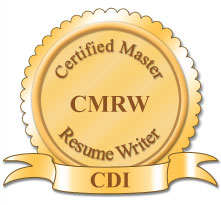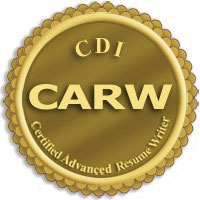In July I wrote an article about phrasal verbs in response to a card in my hotel room that referred to an option to “workout” (one word – improper) instead of “work out” (2 words – proper) in the comfort of your own room.
Since then I have discovered that the Hilton Garden Inn is not the only hotel to make this error. While considering a possible stay at the Hyatt Regency in Baltimore, I found this sentence:
“For those who choose to workout in the privacy of their spacious guestroom, we offer YogaAwayTM.”
The Hyatt’s advertising team made the exact same error as the Hilton’s. Coincidence?
Hotel Helter Skelter
Here’s a strange thing: Just for fun, I Googled “Hyatt workout” and discovered that the Hyatt is not consistent across its websites. The Sarasota Hyatt Regency offers:
“If you choose to work out in the privacy of your own hotel room or suite at Hyatt Regency Sarasota, we offer YogaAway™.”
Sarasota got it right!
I wonder who is responsible for this mismatched spelling? Why is Hyatt messaging not consistent between Baltimore and Sarasota? I’ve always thought the draw of a hotel chain is the reassurance that you will get the same consistent service no matter where in the world you go. The discrepancies on the Hyatt’s websites make me think perhaps their other amenities are not consistent either.
In the meantime, I have ventured on to yet another institution of hospitality: a Marriott resort in Palm Desert, California. Marriott evidently cares about energy conservation and therefore put out the following request:
“In an effort to conserve water and energy, would you please consider using your towel more then once.”
I don’t know about you, but my grammar checker even caught this one! The correct statement would have been:
“In an effort to conserve water and energy, would you please consider using your towel more than once.”
There are some other grammatical issues with this sentence, but I’ll let them be for now. Do you see the other issue here? If you do, please share in the comments.
I recall seeing a similar message in another hotel … I’m not sure which one, but I believe the word “than” was properly used or I probably would have blogged about it.
Wouldn’t it be nice if hotels could all get their grammar as straight and smooth as their bed sheets?
Judging a book by its blunders?
And by the way, even though this Marriott is a resort-level establishment, a level “6” which is pretty high in the Marriott pecking order, the round piece on the top of my bathroom sink drain was detached when I got to the room, and there was a stray peanut hiding under my very expensive flat screen TV. Maybe grammar blunders really are an indication of deeper quality and performance issues?
What do you think? Have you found a hotel grammar blunder of late? What would you suggest to these institutions that would keep them consistent and grammatically correct? And how much do you judge a service provider based on the consistency and correctness of its message?











Seems to me that this hotel is asking a question and forgot to reinforce that with the appropriate punctuation: a question mark!
Your blog, Brenda, echoes my main bug-a-boo, which is that too many think they write well, and too few value good composition.
It’s true, too, as you’ve pointed out, that once we’ve discovered this inattention to detail and lack of sophistication in the writing, our brains begin to make leaps to other possible inconsistencies!
Thanks Stephanie. What boggles my mind is how there can be such inconsistencies between institutions that are theoretically branding themselves as the same chain. How does this happen?
Spelling errors drive me crazy and give me the feeling that quality is substandard, but I am also realizing that formal grammar and spelling seem to be less important THAN they were when I went through school.
Excellent catches, but sadly, examples such as these seem to have become more the norm than the exception. The current tidal wave of grammar and spelling errors in websites, blogs, articles, books, newscasts, advertisements, and public messages is an unfortunate indication of the deteriorating standards of literacy and education in this country.
Thanks for your “catch” Larry. Note however that I pointed out there were additional issues with the sentence. The punctuation is only one of them, and in actuality the question period at the end of the sentence is not incorrect. Here’s the guideline from https://www.whitesmoke.com/question-mark-usage:
Using question marks for indicating requests
1. Use a question mark with a mild command or polite request instead of a period that would make the request more demanding.
Would you take these reports down to accounting?
[Polite request – It would be nice if you do.]
Would you take these reports down to accounting.
[Directive order – Take these reports]]
I believe it could be argued that the statement at hand is more directive than questioning. The opposite could of course also be argued.
Do you see the other problem with the sentence?